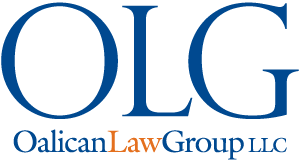Many retired Americans find themselves in quite the quandary. While they are rich in home equity, they struggle to make ends meet every month. Although there is always the option to put their homes on the market, many retirees are reluctant to give up a house with so many life long memories. More and more retirees are considering a reverse mortgage as an ideal solution to convert home equity into cash. While Medicaid is the primary program to pay for nursing home care, funding for programs to keep elders at home are much more limited. Accordingly, the merits of obtaining a reverse mortgage to pay for home care is a topic often discussed with elder law attorneys and their clients.
The vast majority of reverse mortgages are made through the Federal Housing Administration’s Home Equity Conversion Program (HECM). These mortgages are a unique type of home loan that allows borrowers to convert a portion of the equity in their homes into cash. Unlike a traditional home equity loan or a second mortgage, there is no repayment required so long as the borrower still lives in the house. In order to qualify you have to:
1) be 62 years old or older;
2) own your home outright (or have a small remaining mortgage balance); and
3) live in your home.
The amount available to borrow depends on a variety of factors, including the home’s appraised value, interest rate, and the age of the youngest borrower. The maximum amount that can be received is $625,000. However, that limit is set to be reduced to $417,000 after 2014. So, now may be a good time to take a fresh look at the appropriateness of a reverse mortgage.
There is no credit check or income verification. The mortgage is based solely on the property value of the home. Borrowers can chose how they receive the money – as a lump sum, in installments, or as a line of credit where money can be withdrawn as needed. Also, the costs to obtain a reverse mortgage are significantly less expensive than in the past. That is not to say that reverse mortgages are cheap, there are still some fees to put the mortgage in place. However, recent changes make reverse mortgages more attractive to those who want to stay at home and need cash now.
Before borrowers dive right in, there are still few factors to consider. Along with the expenses, a great deal of the borrower’s equity will be erased as time goes on, perhaps even sooner than expected. Furthermore, these mortgages could potentially disqualify borrowers from other federal or state-run aid programs. Also, if only one spouse is named on the mortgage and that spouse dies, the mortgage must be repaid even if the other spouse is still alive. Borrowers who stay in their homes a long time, or who die at home, will leave their heirs little, if anything at all. Despite these unsavory caveats, a reverse mortgage may still be the best option for many retirees – especially if the proceeds are needed to pay for home care expenses. If you are considering a reverse mortgage, then discuss the option with an elder law attorney in addition to your banker. Doing so puts you in the best position to make the right decision.
Regards,
Eric R. Oalican, Esq.
Oalican Law Group
